PT Cruiser?
$11,800. That’s the price for a 2008 Chrysler PT Cruiser down at my local Chrysler dealer. Throw in the “Refuel America” $2.99 per gallon guarantee into the equation and you end-up with a pre-tax, tag, title price right around $10,200. Not bad. Not bad at all. Then again, is it? There are a lot of factors to consider when approaching any of the bargain basement cars currently on offer during this, Detroit’s [most recent] dark days. Join me as we journey down the PT-shaped rabbit hole…
If you're not an enthusiast, and simply want a 'keeper' car, the $10k Cruiser may be a great deal. What’s that you say? It’s going away? Well exactly. There are a lot of pluses for soon-to-be-defunct, less popular cars like the PT Cruiser that go far beyond the initial purchase price.
A long model run usually translates into a lot of easily obtainable spare parts, from multiple sources. The nearby parts store or junkyard will likely have replacements available for the eight year-old PT in duplicate or even triplicate. The PT Cruiser will also outdo recent entrants like the Toyota Yaris, Nissan Versa and Honda Fit when it comes to parts cost. For transplanted customers who have been beholden to the dealer for a $500 repair, that would cost maybe $150 in a mainstream Detroit iron, this is a weighty consideration.
All things being equal, a long model run also has the advantage of offering far fewer defects 'on average' than the latest and greatest models. A car that's been built a million times over has effectively given the supplier and the manufacturer plenty of opportunity to improve the car's design and reduce defects.
[Note: this isn't always the case. Google 'engine sludge' or 'transmission issues' and you'll see a long list of both domestic and transplant products that failed to make the grade, either initially or over time. However a quick visit to an enthusiast's site for your car (Google the model and add 'enthusiast' to the search) or owner's review sites like TrueDelta can tell you all you really need to know about a vehicle's true quality.]
Then there’s the double whammy of depreciation and gas cost.
For a car like the PT Cruiser, depreciation can be an absolute killer. As of writing, a PT Cruiser will lose an estimated 63 percent ($9,644) of it's retail value over five years. That’s far more of a hit than new models like the Yaris ($3,960), or Versa ($5,059), or the Fit ($5,152). For those who keep their rides for five years, the Intellichoice site is a good place to figure out your true costs of ownership, including depreciation.
If you're one of the wiser souls who decides depreciation should be minimized at all [non] costs, you’ll find that a 10-year ownership period will reduce this difference by at least two-thirds. As common sense suggests, when it comes to depreciation, it's the keeper who usually comes out ahead.
There’s a lot anyone can do to minimize their vehicle’s depreciation. Keep it, clean it, use high quality parts, drive conservatively and know your car by joining an enthusiast's group. But gas cost is a far, far stickier wicket.
The PT Cruiser may be seen as frugal wee beasties, but a 19 city and 24 highway mpg rating puts it far behind on the other three competitors. If you keep a PT for 100k miles and drive evenly between the city and highway, you’ll spend $18,605 on gas (assuming $4/gallon). That is $6,105, $4,320 and $5,490 more than the Yaris, Versa and Fit. Double the duration and your gas costs may outweigh any other single cost. Even depreciation. With gas supply on a perpetual plateau and demand only going up, this is a real deal breaker for those who’ve changed their fuellish ways.
Finally, there’s insurance. An older and more conservative car with a strong safety rating will usually do far better here than a fashionable car that appeals to a riskier audience. In this sense, the PT is good news. A car like the PT Cruiser A) generally appeals to conservative and mature drivers B) offers pretty good safety ratings, and C) and requires cheap replacement parts (as mentioned). Most folks will simply call their insurance company and get a quote. That's fine. But being on the right side of these three rankings can make a big difference on the bottom line.
So, for a retiree who drives sparingly, a brand new PT Cruiser is an excellent value. For an enthusiast, the Fit and Versa are the more fun vehicles to drive. If you look at cars as an overall economic proposition over a relatively short time period, the Yaris is probably a better bet. Personally I’d pick a VW Rabbit. But that’s an article for another day.
More by Steven Lang
Latest Car Reviews
Read moreLatest Product Reviews
Read moreRecent Comments
- 28-Cars-Later Actually Honda seems to have a brilliant mid to long term strategy which I can sum up in one word: tariffs.-BEV sales wane in the US, however they will sell in Europe (and sales will probably increase in Canada depending on how their government proceeds). -The EU Politburo and Canada concluded a trade treaty in 2017, and as of 2024 99% of all tariffs have been eliminated.-Trump in 2018 threatened a 25% tariff on European imported cars in the US and such rhetoric would likely come again should there be an actual election. -By building in Canada, product can still be sold in the US tariff free though USMCA/NAFTA II but it should allow Honda tariff free access to European markets.-However if the product were built in Marysville it could end up subject to tit-for-tat tariff depending on which junta is running the US in 2025. -Profitability on BEV has already been a variable to put it mildly, but to take on a 25% tariff to all of your product effectively shuts you out of that market.
- Lou_BC Actuality a very reasonable question.
- Lou_BC Peak rocket esthetic in those taillights (last photo)
- Lou_BC A pickup for most people would be a safe used car bet. Hard use/ abuse is relatively easy to spot and most people do not come close to using their full capabilities.
- Lorenzo People don't want EVs, they want inexpensive vehicles. EVs are not that. To paraphrase the philosopher Yogi Berra: If people don't wanna buy 'em, how you gonna stop 'em?



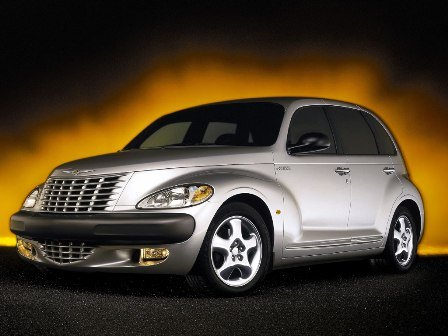















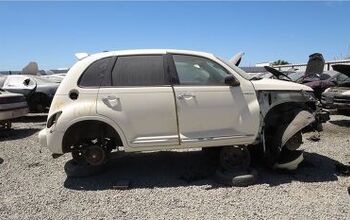
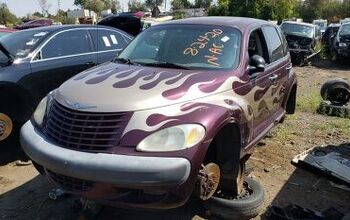
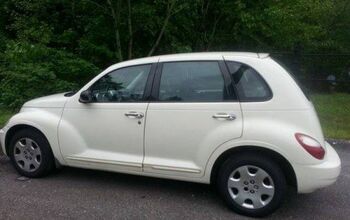
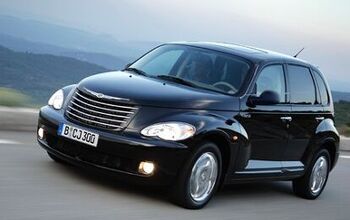
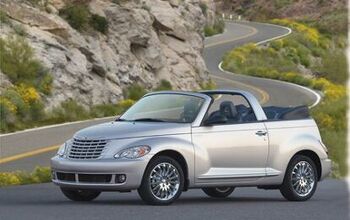


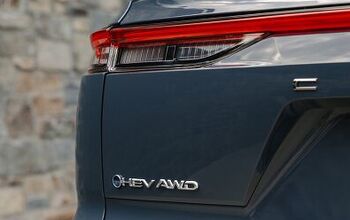







Comments
Join the conversation
I have a 2008 pt cruiser touring model with automatic transmission. I've only had it for two weeks at first I loved it. It's a comfortable ride and you can do so many things with it. Then one evening I noticed my headlights were flickering. The dash board too. They even went totally out at one point and then came back on. I never know when this is going to happen. It's very scarey driving at night and the lights go out, but a girls gotta work right. I've taken it to the dealer who cannot find the problem so I'm stuck driving it this way. So much for having a factory warranty. If I had any money I'd get rid of it immediatly and never own another.
Very sorry all in the US the best model's only available here in Europe http://www.edmunds.com/news/column/carmudgeon/72740/article.html. 40+ MPG, great performance and a Mercedes engine